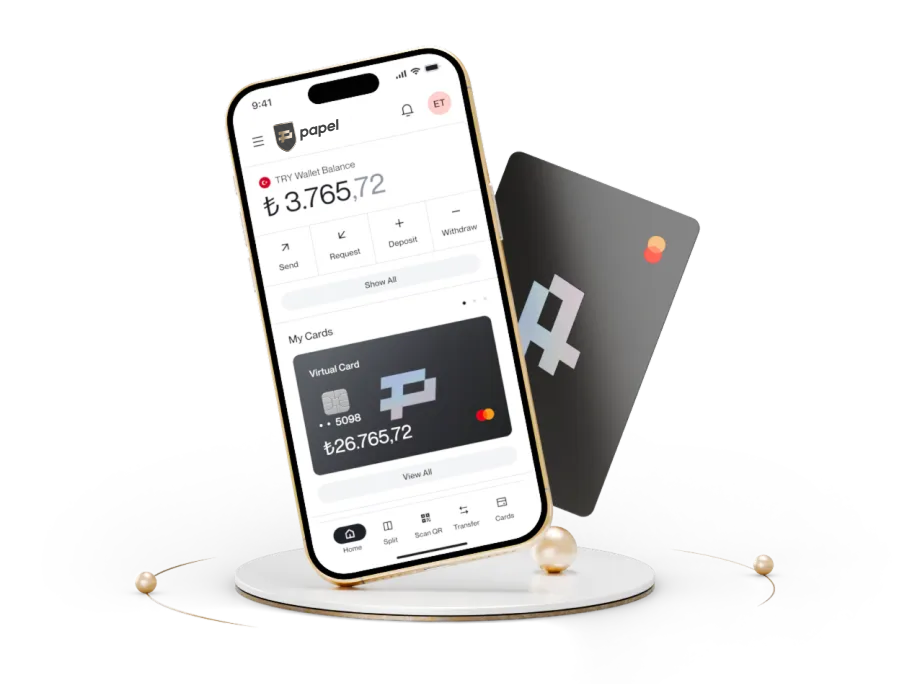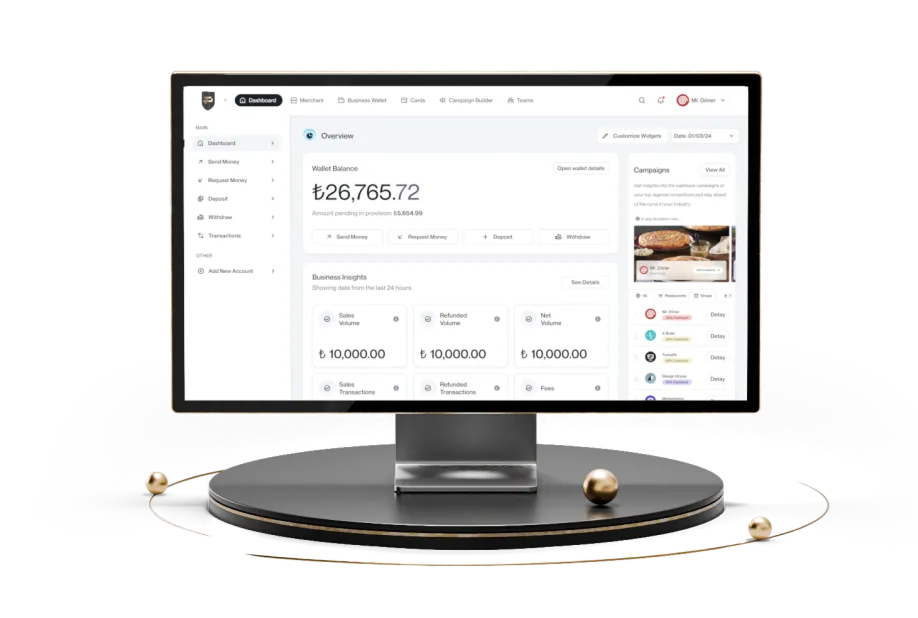Is QR Code Payment Secure? Risks and Precautions
QR code payment systems offer users and businesses a secure and cost-effective option. They are a practical and fast method that saves time when used correctly. So, how does QR code payment work, its advantages, and what should you pay attention to for secure usage? Here are all the details you need to know about QR code payments!
What is QR code payment?
QR code payment is a digital payment system that is performed with smartphones without physical contact. In this payment method, payment information is encrypted in a two-dimensional barcode called a QR code, and the transaction is completed by scanning this code. As a practical and secure payment method in an increasingly digital world, it is essential to use trusted applications, verify transaction information, and check the authenticity of the QR code being scanned when using a QR code.
How does QR code payment work?
QR code payment, which takes place quickly and contactless with smartphones, is becoming increasingly popular. The main reason behind this popularity is its ease and practicality. In this method, the business owner enters the payment amount into the POS device or payment system, automatically generating a QR code for the transaction. The customer scans the QR code displayed on the business owner’s screen using a mobile app or QR code reader on their smartphone. This opens the payment page in the customer’s banking app, and after verifying the necessary information, the payment is approved. That’s how easy and fast QR code payment is—you can also benefit from QR Payment Solutions by becoming a Papel member.
Common usage areas of QR code payment systems
Here are the most common areas where QR payment systems are used:
- Retail and stores
- Restaurants and cafes
- E-commerce and online shopping
- Bill and public service payments
- Public transport and transportation
- Events and ticketing
- Healthcare services
Advantages of QR code payment
Due to its practicality, QR code offers many advantages for businesses and users. These advantages can be listed as follows:
Speed and convenience
Since there is no need to enter card information manually, QR code payments are quick and easy.
Contactless transaction
The QR code payment method does not require physical contact. Especially after the pandemic, the QR code has stood out as a hygienic and fast payment method.
No extra device required
No additional device is necessary to make payments with a QR code. A smartphone with a linked bank or credit card is enough to pay via QR.
Security
Since personal information is not shared and there is no physical contact during the transaction, the risk of fraud with QR code payment is lower than other methods.
Flexibility
Their simple two-dimensional design allows QR codes to be easily integrated into various materials, offering flexibility. Using QR codes on business cards, brochures, packaging, or other marketing materials is practical.
Low cost
Especially for small businesses, receiving payments via QR code is financially advantageous as it eliminates the need for POS devices.
Security risks of QR code payments
Despite offering practicality and speed, QR code payment can involve some security risks. Awareness of these risks and taking necessary precautions is essential for a secure payment experience. There are two main risks to be particularly cautious about in QR payment systems.
Fake QR code fraud
Since QR codes are easy to integrate, this can create an opportunity for fraud. In public places or restaurants, fake QR codes may be placed over original ones to deceive users. Fraudsters may use these fake QR codes to redirect users to malicious sites or collect payments into their accounts. To avoid this, always verify the authenticity of the QR code before scanning it. Also, check the URL and payment details after scanning.
Protection of personal data
Scanning fake QR codes can result in harmful software installed on your device or your personal data stolen. This can lead to serious consequences such as identity theft and financial loss. Therefore, having up-to-date security software on your device can help protect you from malware.

How to ensure secure QR code payment
Ensuring security while paying via QR code is essential. Certain precautions should be taken to earn customer trust and ensure the system is used smoothly.
Use updated software and applications
Keep your devize’s operating system and security software up to date to protect against known vulnerabilities. We recommend using only official mobile apps from banks or trusted payment providers for transactions.
Protecting personal information
Avoid sharing unnecessary personal information during payment and only fill in the required fields.
Using secure connections
Make sure to use secure (https://) connections while performing payment transactions.
Following these precautions can reduce the risks associated with QR code payments and allow you to enjoy a safer payment experience. Once you get used to the convenience of contactless payments, try other contactless payment technologies, too. Papel Blog explains other contactless payment technologies along with QR code payments.
Security tips for businesses using QR code payments
QR code payment systems offer businesses a practical and fast payment method, but security should not be overlooked. Here are some recommendations companies should consider to improve the security of QR code payments:
Use dynamic QR codes
Creating unique and single-use dynamic QR codes for each transaction prevents the use of fake QR codes and enhances security.
Use trusted QR code generators
It is essential to use well-known and reputable platforms when generating QR codes. Doing so helps prevent the integration of malicious software.
Raise customer awareness
Even if all precautions are taken, risks still exist. Therefore, informing customers to check the originality of QR codes before scanning and to report suspicious situations to business staff can help reduce fraud risk.
Secure payment infrastructure
When integrating the QR code payment system into your existing payment infrastructure, use a reliable, flexible, and scalable payment system to enhance user experience and security.
Use of SSL/TLS encryption
SSL/TLS encryption secures data transmission during the payment process and helps protect customers’ information.
Regular security audits
Even with all precautions in place, performing regular audits and tests ensures ongoing security and helps identify and fix potential vulnerabilities in the QR code payment system.
Frequently Asked Questions
What is a dynamic QR code?
A dynamic QR code is a uniquely generated code for each transaction that becomes invalid after a specific time. Creating a separate QR code for each transaction increases security.
What is SSL/TLS encryption?
SSL (Secure Sockets Layer) and TLS (Transport Layer Security) are encryption protocols used to protect data privacy and integrity and ensure secure data transmission over the internet.
Sources: 1.
The information provided in this blog post is for general informational purposes only and does not constitute legal, financial, or investment advice. The content is prepared solely for informational purposes, and seeking professional advice for your specific circumstances is recommended. The statements in this article do not create any binding obligations or liabilities and solely reflect the author's opinions. All decisions and responsibilities are yours, and Papel Elektronik Para ve Ödeme Hizmetleri A.Ş. assumes no liability.

